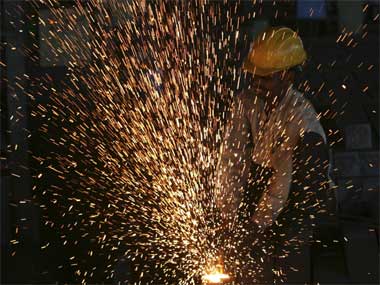New Delhi: The steel ministry today reviewed the price fluctuation issue with the steel makers, but did not ask them to bring down the prices, a private sector official present at the meeting said.
“There has been lot of ups and downs in the prices of steel in recent times. They (the steel ministry) were trying to understand the reasons. However, they did not ask us to bring down the prices,” JSW Steel senior vice president (sales) Sharad Mahendra said after emerging from the meeting.[caption id=“attachment_329417” align=“alignleft” width=“380” caption=“Rising cost. Reuters”]  [/caption]
The meeting was called to find out the reasons of faster movement of the prices of long products (used in construction) than flat products (used in FMCG and auto sectors) though its production cost is higher.
The domestic price of TMT bars increased by 3.3 percent in the fourth quarter of the last fiscal over the immediate past quarter. It was up by 14 percent over the corresponding quarter previous year. SAIL was selling TMT bars at Rs 41,000 per tonne with effect from 1 April.
Mahendra said steel makers have outlined the problems of the secondary producers, which produce 70 percent of domestic long products, in producing the alloy.
“We have told them that prices were up primarily because the secondary producers are suffering from power shortage. They are also facing iron ore shortage and other issues. And as a result of all these, they are not able to produce more,” he said.
Major producers mainly produce flat products and they do not face many of these problems and hence, the fluctuations in the prices were also less.
As steel is a deregulated sector, the prices of steel products are decided by individual producers and the government has no role in determining the prices.
However, it intervenes through fiscal measures, as and when need arises, to maintain steady supply position in the domestic market and to boost steel production in the country.
PTI


)
)
)
)
)
)
)
)
)



